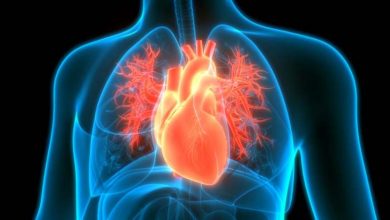What is abdominal gas? What kind of troubles does it cause?

What is abdominal gas? What kind of troubles does it cause?
The feeling expressed as abdominal gas or bloating is the gas that accumulates in the intestines. Intestinal gases; it consists of oxygen, nitrogen, hydrogen, carbon dioxide and methane. All of these are odorless. It is hydrogen sulfide that causes bad odor. Gas occurs most densely in the large intestine. Gas is released when bacteria of the large intestine break down carbohydrates in food.
It is troublesome to gas constantly. Gas extraction happens by burping or flatulence. It is extremely normal to wind up 10-15 times a day. More than 20 are abnormal. Flatulence is less in gas compression. Gas jams are often expressed in the following emotions:
“My stomach hurts. Sometimes I feel like cracking. If I get a gas, I’ll be relieved.” “I’m so swollen that I can’t breathe.”
Why does it happen?
Swallowing excessive air causes flatulence. Smokers, chewing gum, and those with fast eating habits frequently swallow air. Chronic colon diseases called colitis cause colon diverticula, Sensitive Bowel Syndrome, gas and bloating. Antibiotics, rheumatism medications, vitamin pills are other causes of swelling. Those with lactose and gluten intolerance cannot gas easily, therefore they complain of abdominal bloating. If bacteria or virus infections of the intestines continue for a long time, it causes gas and bloating. Finally, colon tumors can also cause bloating.

What is intolerance?
There are different carbohydrates and proteins in the essence of foods. Situations in which these cannot be digested by the body are defined as intolerance. Lactose is the sugar found in milk and dairy products. The Lactase enzyme produced by the body is required to digest it. If there is no or insufficient lactase enzyme, the lactose in milk cannot be broken down. This situation causes severe gas problems. As the lactase enzyme decreases with age, milk intolerance is more common.
Similarly, intolerance can develop against the sugar called Fructose in fruits and vegetables and the protein called Gluten in wheat. Sorbitol, which is found in artificial sweeteners, can cause gas. Sorbitol; Since it is also found in peaches, apples and plums, those suffering from gas should avoid such fruits.
What should we do?
Eat less but often, swallow food thoroughly by chewing. Get your dinner early, choose light foods as much as possible. Reduce the oil. Stop smoking. It is necessary to consume fibrous foods for a healthy life. However, if there is gas and bloating, consume these foods less. Avoid vegetables, fruits, beans, chickpeas and peas.
Dental health is extremely important for digestion. Missing or decayed teeth, defective dental prostheses can cause gas. Take care of dental care, if you have a prosthesis, make sure that it does not move. Do not underestimate gas and swelling. These problems can be a symptom of an extremely serious bowel disease. This requires a complete and systemic examination.
How is it treated?
Stay away from foods that you are sure make gas. Reduce your fat consumption. Do not use any medication other than your doctor’s advice.
Stay away from
- * Vegetables, legumes, fruits
- * Wheat bread * Bran * Cake, cookies, bagels * Milk, yogurt * Beer * Chewing gum





